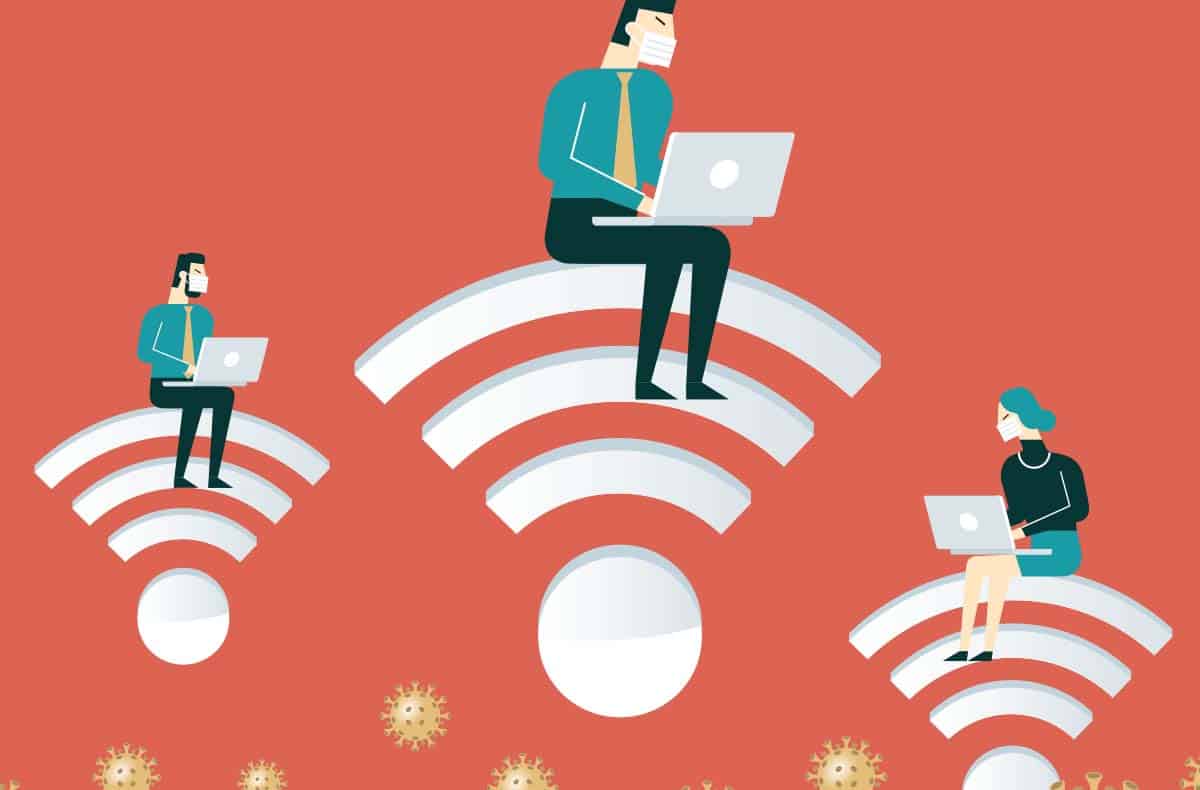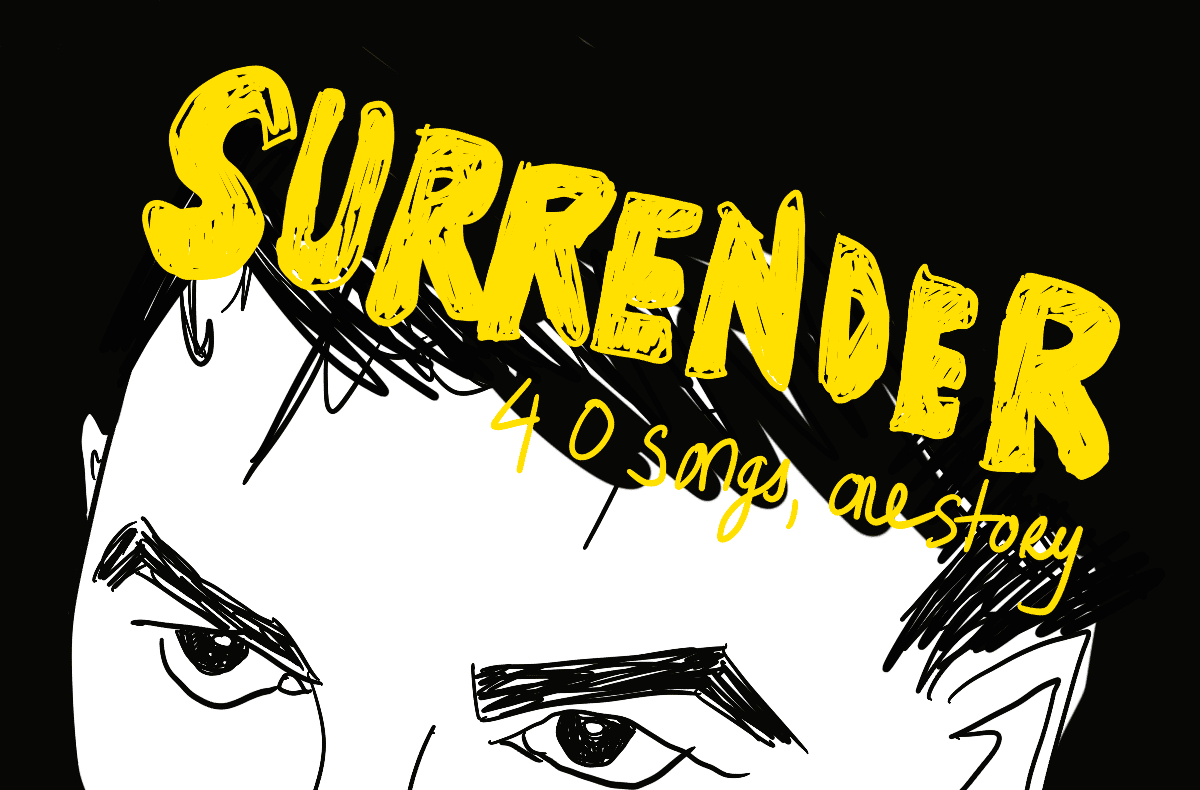
Not now, monkeypox. Indeed, not ever (preferably). Yet whether this is the next deadly chapter in the “Pandemicene” or a containable flurry, we are now moodily alert to viruses that might chase us from our own streets. It’s fascinating to me how this uncomfortable realization is reverberating through economy, technology, and society.
For one thing, there’s a causal line to be drawn between enormous tech-company growth, and the evacuation of public spaces. Earlier this year, the FT wrote on “Prospering in the pandemic: winners and losers of the Covid era.” Apple’s chart-topping 123% growth in market value is explained by “employees working from home…spending less on travel and restaurants but upgrading their iStuff”.
Microsoft in second place (110%), Alphabet at third (108%) and Amazon at fifth benefitted from their cloud services—enabling homeworking jobs, as well as online retail, gaming, and viewing.
It’s logical, all the way down the list. Four processor manufacturers are in the top 20 corporations who prospered; their chips enable everything cloud-based (and game-faced). Nvidia’s valuation alone is up by 411%. Netflix, as you’d expect, makes the cut. And Meta (7th) is betting big on the metaverse.
Nothing feels more opportunistic in an age of increasing public contagion than the idea of a metaverse. You have to give it to information capitalists—there’s nothing they can’t commodify. In one aspect, the metaverse is an attempt to make a market from raw perceptual experience itself—indeed, from our sense of space and time itself.
Is a disrupted biosphere keeping you from being a physical being in your tree-lined community, madam/sir? Then here’s your helmet, your gloves, your body suit if you like, your neuralink if you’re brave enough. And welcome to our virtual society, where you can work, rest, love, and play (for an incrementally increasing fee), until the medics figure out the next vaccine shield.
You don’t have to be a sci-fi visionary to imagine what’s bad and wrong with this picture. But it helps. Neal Stephenson, who coined the term “metaverse” in his 1992 novel Snowcrash, envisaged exactly the scenarios one might fear. Be-goggled pizza delivery guys escape digitally from their unravelling societies, wandering down infinite, brand-defined streets, bearing desperate avatar names like “Hiro Protagonist.” Ready Player One peddles the same dystopia.
Need this be the case? Could this technology not just be about escapism and productivity, but about “engagism” and regeneration too? I recently wondered whether some element of this impending metaverse could also become a “betaverse.”
The betaverse would be a place where we could plan, dream, simulate and prototype desirable futures for the “real” world (one of which might obviously involve zero-carbon living). This is especially if virtuality is the place we increasingly end up occupying, as a worsening climate quarantines us. (We may need regulators to assert some public or civic stake in this commercial realm—a PBS or BBC equivalent.)
In other sectors, the home confinements of the pandemic have worked to the benefit of employees and citizens, as opposed to executives and moguls.
The UK’s Office of National Statistics has noted that four-fifths of higher earners now plan to split their time between home and the workplace. Forty-two percent of these expect that, in the future, they’ll spend most of their working hours at home. The UK Prime Minister Boris Johnson’s exhortations to “get back to the office” seem to be bouncing off the talent.
So the home space is a complex battleground for the future. I have no doubt that our Covid seclusions, and particularly furloughs, have generated a lot of thoughtful musing among workforces (as the churn of the Great Resignation shows).
Did we realise before how much our organisations had become pseudo-communities to us, compared to the homes and communities we’re truly embedded in? How much of working culture is presenteeism, a combination of ritual, surveillance and mutual grooming? Distractions to the core value-creating tasks at hand?
Rather than try to hold the revolving exit doors against the tide of work-from-home, there should be a strategic pow-wow between companies, property developers and governments (city or country level).
For example, we have a housing crisis in many developed countries. Converting some of this redundant office space into liveable, affordable residences would improve many urban indicators.
They’d restore demand for localised services, and across a much broader range than just sandwich shops and same-day dry-cleaners. And what about the opportunities for vertical farming, make-and-repair shops, or cultural activity in these ex-office blocks?
The home can answer what Shoshana Zuboff, the great critic of surveillance capitalism, calls our need for “sanctuary.” She means a realm in which one can decide what one really wants, without a zillion algorithms trying to guess or shape what it might be.
I assert that “sanctuary” has definitely been in operation during our enforced Covid stays. But that has gone alongside a commercial and digital raid on our experience, as that has been confined to our four walls (and many screens).
So if our pandemic-era homes are to become sanctuary, public square and marketplace, we certainly need some “new thinking” about how we structure this most humane of all our locales, under unprecedented conditions. And of course, in any case: damn you, monkeypox.



